Buy Cabtana : Cabazitaxel 60 Mg Injection Online
$186.58
Brand Name: Cabtana
Composition: Cabazitaxel
Manufacturer: Zydus Cadila
Strength: 60mg/1.5ml
Form: Injection
Packaging: Pack of 1 vial & 1 diluent
Prescription Required: Yes
Cabtana (Cabazitaxel) is an intravenous medication used to treat metastatic hormone-resistant prostate cancer. It is manufactured by Sun Pharmaceutical Industries Ltd and is available in injection form. Cabtana contains Cabazitaxel, an anti-cancer medication that works by stopping the growth and division of cancer cells.
Composition:
The active ingredient in Cabtana is Cabazitaxel, which is present in 60 mg per vial. The medication also contains other inactive ingredients such as ethanol, polysorbate 80, and citric acid monohydrate.
Uses:
Cabtana is used to treat a type of advanced prostate cancer that has spread to other parts of the body and is no longer responding to hormone therapy. It works by disrupting the microtubule structures needed for cell division, ultimately leading to cell death in cancer cells. Cabtana can help prolong the survival of patients with metastatic hormone-resistant prostate cancer.
Usage and Dosage:
Cabtana is given via intravenous infusion under the supervision of a healthcare provider. The usual dose is one vial (60 mg) administered over the course of 1 hour every 3 weeks. The dose may vary depending on the patient’s condition, and the healthcare provider may adjust the dose as necessary. The medication is usually given in combination with other chemotherapy medications and is typically given for a total of 10 cycles.
Storage Conditions:
Cabtana should be stored in a refrigerator between 2°C and 8°C. The medication should be kept in its original packaging until ready to use. It is crucial to protect the medication from light and keep it out of reach of children.
Mechanism of Action:
Cabtana contains Cabazitaxel, which is a taxane chemotherapy medication that works by disrupting the microtubules in cancer cells. Microtubules are essential for cell division and growth. Cabazitaxel prevents this process and leads to the destruction of cancer cells. Cabtana has also been shown to affect the blood vessels that feed cancer cells, which may contribute to its anti-tumor activity.
Contraindications:
Cabtana is contraindicated in patients who have a known hypersensitivity or allergy to Cabazitaxel or any of its components. It should not be used in patients with low white blood cell counts or low platelet counts. It should also not be used in pregnant or breastfeeding women.
Interactions:
Cabtana may interact with other medications, including other chemotherapy medications, CYP3A4 inducers, and inhibitors. Patients should inform their healthcare provider of any medications they are currently taking, including prescription and over-the-counter medications and herbal supplements.
Side Effects:
Cabtana may cause various side effects, some of which may be serious. Common side effects may include nausea, vomiting, diarrhea, fatigue, low blood cell counts, and hair loss. More severe side effects may include severe infections, allergic reactions, neuropathy, and heart or lung problems. It is essential to discuss any side effects with your healthcare provider immediately to determine the best course of action.
Be the first to review “Buy Cabtana : Cabazitaxel 60 Mg Injection Online” Cancel reply
Related products
Anti Cancer
Anti Cancer
Anti Cancer
Anti Cancer
Anti Cancer


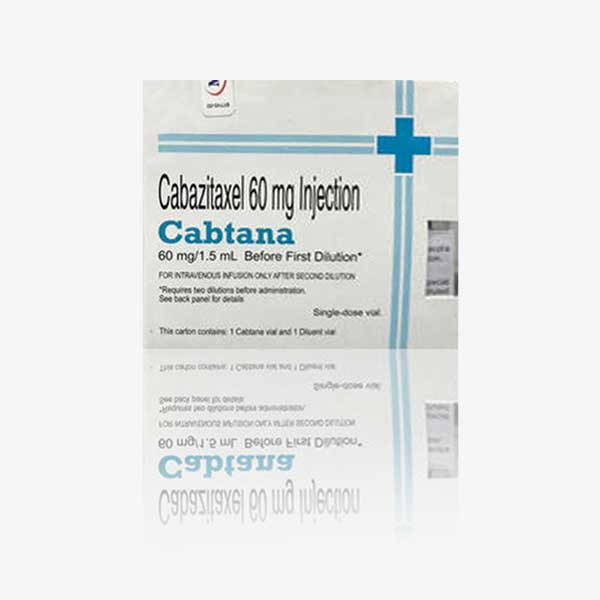



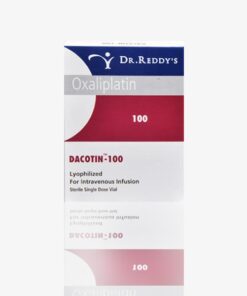

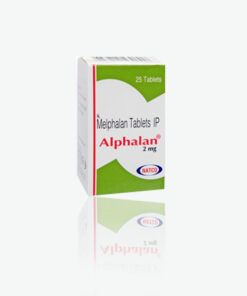
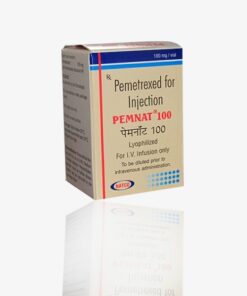
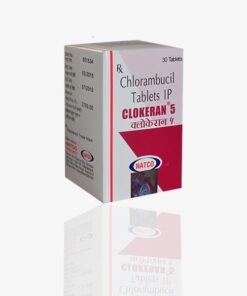
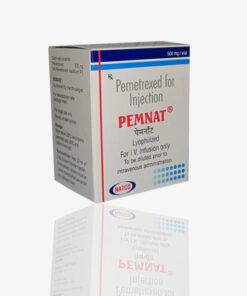

Reviews
There are no reviews yet.